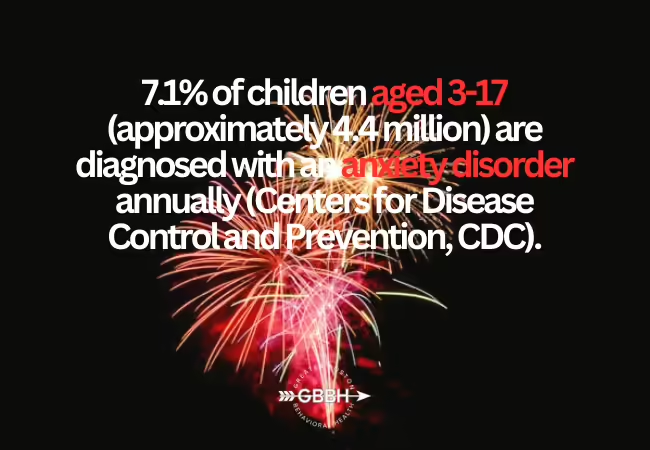Life often throws us into situations that challenge our mental fortitude, leaving us grappling with anxiety and stress. Whether it’s juggling work, family, or the unexpected curveballs that come our way, the pressure can feel overwhelming. Thankfully, there are proven strategies and resources available to help you build resilience and regain control over your mental well-being.
If you’re navigating difficult times, it’s important to know you’re not alone. Professional support, like an Anxiety Treatment Program, can provide tailored tools and guidance to help you overcome these challenges. Here, we’ll explore effective methods to cope with anxiety and highlight how behavioral health in Boston services can be transformative for your journey to better mental health.
Recognizing the Signs of Anxiety
Anxiety often manifests in various ways, including:
- Persistent worry or fear
- Difficulty sleeping or concentrating
- Irritability or restlessness
Strategies to Build Resilience
Coping with anxiety involves adopting effective self-help strategies and seeking professional support when necessary. The following approaches are designed to address both immediate symptoms and long-term resilience.
1. Practice Mindfulness and Stress-Relief Techniques
Mindfulness helps individuals stay present, reducing the grip of anxious thoughts about the past or future.
- Deep Breathing Exercises: Inhale deeply through the nose, hold for a few seconds, and exhale slowly to calm the nervous system.
- Meditation: Guided meditations or apps like Headspace and Calm can help focus your mind.
- Progressive Muscle Relaxation: Systematically tense and release muscles to alleviate physical tension.
2. Establish a Balanced Routine
A predictable routine provides structure and stability, reducing feelings of uncertainty and chaos.
- Sleep Hygiene: Prioritize 7-9 hours of restful sleep. Avoid screens and caffeine before bedtime.
- Physical Activity: Exercise reduces cortisol levels and releases endorphins, which improve mood.
- Healthy Eating: A diet rich in whole grains, lean proteins, fruits, and vegetables supports emotional balance.
3. Manage Exposure to Stressful Triggers
While stress cannot always be avoided, minimizing exposure to certain triggers can reduce its impact.
- Limit Media Consumption: Take breaks from the news and social media during stressful times.
- Set Boundaries: Politely decline tasks or commitments that feel overwhelming.
- Organize Tasks: Break large projects into smaller, manageable steps to reduce anxiety about completing them.
4. Build a Strong Support Network
Connections with others can reduce feelings of isolation and provide emotional support during tough times.
- Reach Out to Loved Ones: Talking to trusted friends or family members can offer reassurance and comfort.
- Join Support Groups: Groups focused on managing anxiety provide shared experiences and coping strategies.
- Engage in Therapy: A therapist can help you develop personalized strategies for navigating anxiety.
5. Reframe Negative Thoughts
Anxiety often stems from irrational or distorted thinking patterns. Cognitive techniques can help reframe these thoughts.
- Challenge Cognitive Distortions: Ask yourself if your fears are realistic or exaggerated.
- Practice Gratitude: Focus on positive aspects of your life to shift your perspective.
- CBT Techniques: Work with a therapist to identify and replace unhelpful thought patterns with constructive ones.
Why Professional Support Matters
When anxiety becomes overwhelming, turning to a trusted professional resource like Boston behavioral health services can make a significant difference. Greater Boston Behavioral Health specializes in offering comprehensive care for individuals struggling with anxiety and other mental health concerns.
Our mental health treatment programs provide both partial hospitalization and intensive outpatient services, ensuring personalized care based on your needs.
The Benefits of Seeking Help at Greater Boston Behavioral Health
- Tailored Treatment Plans
We understand that everyone’s journey is unique. That’s why our mental health treatment center in Boston creates individualized plans that address your specific concerns. - Wide Range of Services
From mental health therapy programs to an employee assistance program at our Needham, MA campus, we offer diverse services to cater to various mental health challenges. - Expert Guidance
Our team comprises experienced professionals dedicated to helping you overcome anxiety and other mental health issues. With their support, you can develop the skills needed to navigate life’s challenges more confidently. - Convenient Accessibility
Located in the Greater Boston area, our facility is designed to provide accessible and high-quality care to the community.
Why Choose Greater Boston Behavioral Health?
If you’re searching for effective, compassionate care, Greater Boston Behavioral Health is here to help. Our mental health therapy programs emphasize a holistic approach, combining evidence-based practices like CBT, mindfulness, and group therapy to foster resilience and healing.
With services designed for individuals 18+, we’re proud to offer options that fit into your lifestyle, including:
- Intensive outpatient programs (IOPs) for flexible care that fits your schedule
- An employee assistance program, ensuring workplace well-being
Don’t let anxiety hold you back. Reach out to our mental health treatment center in Boston to learn how we can support you on your journey to a calmer, more fulfilling life.
A Final Word
Anxiety doesn’t have to dictate your life. By incorporating practical strategies like mindfulness, regular exercise, and seeking professional help, you can build resilience and thrive, even in stressful times.
If you or a loved one is struggling with anxiety, remember that support is just a call away. Greater Boston Behavioral Health offers comprehensive anxiety treatment programs tailored to your needs.
Ready to transform your mental health? Contact us online or call us at: 617-307-3842 Greater Boston Behavioral Health to explore our programs and start your journey to resilience. Together, we’ll help you reclaim control over your life and embrace a brighter future.
FAQs on Coping with Anxiety in Stressful Times
What are common signs of anxiety during stressful times?
Signs include persistent worry, difficulty concentrating, irritability, physical symptoms like headaches or fatigue, and avoidance of certain situations or tasks.
How can mindfulness help with anxiety?
Mindfulness practices, such as deep breathing and meditation, help calm the mind, reduce stress, and promote emotional regulation by keeping you focused on the present.
What is an Anxiety Treatment Program?
An Anxiety Treatment Program provides comprehensive care, including therapy, medication management, and holistic approaches, to address anxiety symptoms and build coping skills.
How does CBT Therapy help with anxiety?
CBT Therapy helps individuals identify and challenge negative thought patterns that contribute to anxiety, replacing them with healthier, constructive ways of thinking.
What role does DBT Therapy play in managing anxiety?
DBT Therapy focuses on emotional regulation, mindfulness, and distress tolerance, providing effective tools for managing intense anxiety during stressful situations.
Can professional help really improve anxiety?
Yes, professional interventions, such as therapies and Anxiety Treatment Programs, are proven to reduce symptoms, enhance coping skills, and improve overall well-being.
What services are available at Greater Boston Behavioral Health for anxiety?
We offer:
- Anxiety Treatment Programs
- Mental Health Therapy Programs, including CBT and DBT
- Holistic therapies like mindfulness and stress management
- Family and group therapy options
How can I start managing my anxiety effectively?
Begin by adopting mindfulness techniques, building a healthy routine, and reaching out for professional support through a trusted Mental Health Treatment Center in Boston like Greater Boston Behavioral Health.


